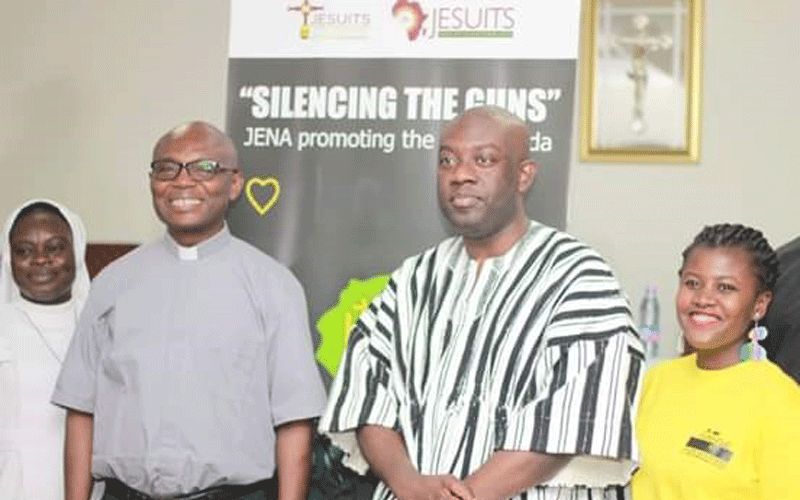Accra, 07 March, 2020 / 12:30 am (ACI Africa).
Ghana is one of the most peaceful and stable countries in Africa that has kept true the spirit of its heroes, Pan-Africanist Kwame Nkurumah and peace ambassador, Koffi Annan, members of the Society of Jesus (Jesuits) have observed while launching the Africa Union’s (AU) 2020 “Silencing the Guns” campaign in the West African country.
The Youth Networks for Intergenerational Outcomes (IYNIGO), an Accra-based Christian youth group championing the agenda of peace in Ghana that is inspired by the Jesuits founder St. Ignatius of Loyola has launched the vigorous campaign.
The campaign is aimed at getting rid of illegally acquired weapons in Ghana and in Africa under the auspices of the Jesuit Justice and Ecology Network Africa (JENA), a community of Jesuits that works in marginalized regions in Africa.
Explaining the choice of Ghana as host country for the inauguration of the campaign that targets all AU member states Wednesday, March 4, Fr. Charles Chilufya, the Director of JENA said the launch was taking place in Ghana because the West African country is an oasis of peace.
“Ghana is one of the most fortunate countries in Africa and in the whole world that enjoys stability, relative peace, high rate of economic growth and increasing prosperity,” said Fr. Charles, adding, “Ghana’s ongoing economic miracle has been made possible by peaceful coexistence of different ethnic and religious groups and by the political stability that the country has enjoyed for several years.”








